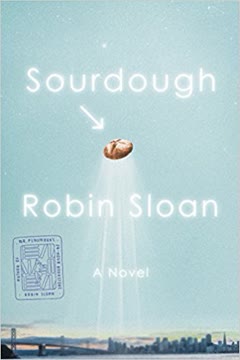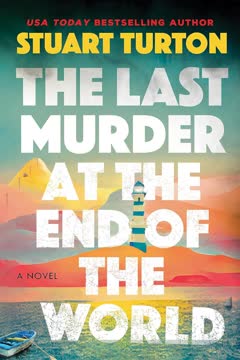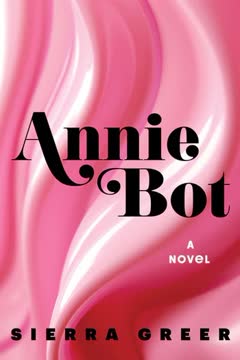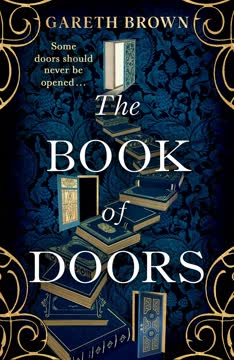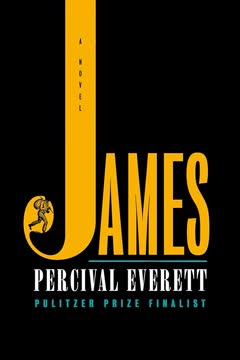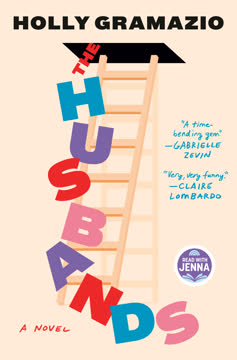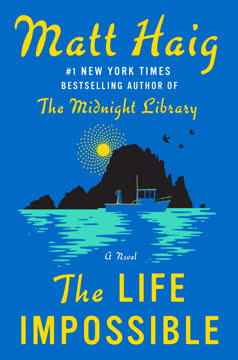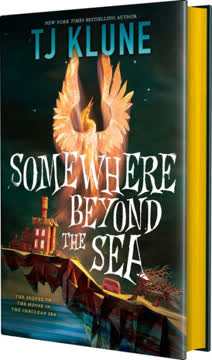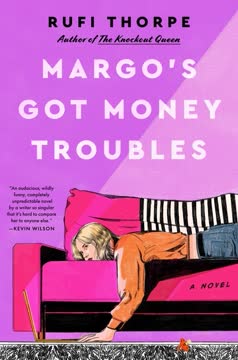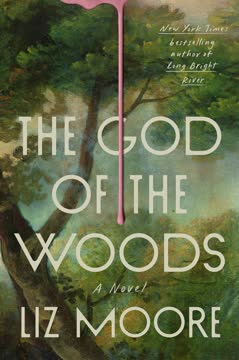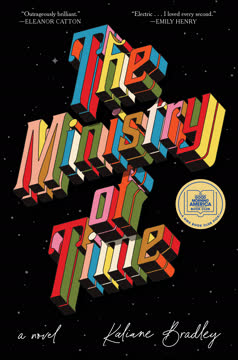Plot Summary
Algorithmic Appetite
Lois Clary, a robotics engineer newly transplanted to San Francisco, finds herself adrift in the relentless, sterile world of tech. Her days at General Dexterity are filled with code and stress, her meals reduced to Slurry, a nutrient gel favored by her colleagues. The city's promise of innovation and connection feels hollow, and Lois's body and spirit begin to wither under the pressure. She craves something real, something that will ground her in this new place. The monotony is broken when a mysterious menu appears on her door, advertising Clement Street Soup and Sourdough. The food, delivered by two enigmatic brothers, is unlike anything she's tasted—spicy, soulful, and accompanied by a slab of sourdough that soothes her stomach and mind. This small act of eating becomes a lifeline, a first step toward rediscovering joy and connection in a city that otherwise feels alien.
The Double Spicy Revelation
Lois becomes a regular at Clement Street Soup and Sourdough, forging a tentative friendship with the Mazg brothers, Beoreg and Chaiman. Their food, especially the double spicy combo, becomes her nightly ritual, a source of comfort and stability. The bread, in particular, is transcendent—alive with flavor and mystery. When the brothers are forced to leave the country due to visa issues, they bestow upon Lois a parting gift: a ceramic crock containing their sourdough starter, the living culture behind their magical bread. With it comes a challenge and a promise—if she can keep it alive, she can bake her own bread. The gift is both a burden and an invitation, pulling Lois into a world of tradition, care, and transformation that stands in stark contrast to her algorithmic existence.
The Gift of Culture
Lois receives not just a starter, but a piece of the Mazg's heritage. Beoreg and Chaiman teach her the basics of feeding and tending the culture, emphasizing its aliveness and the importance of music—specifically, the songs of the Mazg. The starter is temperamental, requiring daily attention and a strange, almost ritualistic care. Lois, who has never cooked or cared for anything more demanding than a cactus, is intimidated but intrigued. The act of nurturing the starter becomes a quiet rebellion against her sterile, optimized life. As she learns to feed and listen to the culture, she senses that she is participating in something ancient and communal, a secret passed down through generations and now entrusted to her.
Awakening the Starter
Lois's initial attempts at baking are disastrous—dough sticks to every surface, the kitchen is a mess, and the results are unrecognizable. But with persistence, guidance from a used bread book, and the music of the Mazg, she manages to produce her first loaf. The bread is imperfect but unmistakably alive, its crust marked by strange, expressive faces. Eating it, Lois feels a surge of pride and wonder; she has created something nourishing from nothing but flour, water, salt, and a bit of living culture. The process is messy and humbling, but it awakens in her a sense of agency and creativity that her work in tech has never provided. The starter, in turn, seems to respond to her care, bubbling and singing in the quiet of her apartment.
Bread and Belonging
Lois's bread becomes a bridge to others. She shares loaves with her neighbor, Cornelia, and her colleagues at General Dexterity, breaking through the social barriers of the Slurry table. The act of giving bread is transformative, fostering new friendships and a sense of belonging. Encouraged by Chef Kate, the company's formidable head chef, Lois begins baking in larger quantities, eventually constructing a backyard oven to meet demand. The rhythm of baking—mixing, kneading, waiting—grounds her, offering a counterpoint to the relentless pace of tech. Through bread, Lois finds her place in the city, her hands and heart engaged in a tradition that connects her to both past and present.
The Lois Club's Wisdom
Seeking connection beyond work, Lois attends a meeting of the Lois Club, a gathering of women who share her name. The club is a tapestry of personalities and histories, and their warmth and curiosity remind Lois of her late grandmother. The Loises encourage her to pursue baking more seriously, to take risks and embrace the unknown. Their stories of regret and reinvention resonate with Lois, who realizes that her own life has become interesting, even enviable. The club's collective wisdom helps her see that tradition is not just inherited but created, and that she has the power to shape her own story.
The Novice's Miracle
As Lois's skills grow, so does her confidence. She refines her technique, learns to read the moods of the starter, and delights in the small miracles of fermentation. Each loaf is unique, its crust marked by faces that seem to reflect her own emotions. The act of baking becomes a meditation, a way to process her anxieties and aspirations. Sharing bread with others—neighbors, coworkers, even strangers—brings her joy and a sense of purpose. The starter, now thriving, becomes a symbol of her own growth: demanding, unpredictable, but ultimately rewarding.
Sharing and Singing
Lois discovers that the Mazg starter is not just alive but sentient in its own way. It responds to music, especially the songs of the Mazg, and exhibits strange phenomena—bubbling, glowing, even singing in the night. The starter's behavior is both enchanting and unsettling, blurring the line between science and magic. Lois becomes obsessed with understanding its secrets, consulting with experts and experimenting with different flours, salts, and feeding rituals. The starter's vitality seems to mirror her own, waxing and waning with her moods and actions. The bread it produces is extraordinary, drawing attention from chefs and foodies across the city.
The Jay Steve Oven
To meet growing demand, Lois constructs a wood-fired oven in her backyard, following plans from an online community of bread enthusiasts. The project is a triumph of DIY spirit and neighborly cooperation, with Cornelia lending her car and support. The new oven allows Lois to bake in greater quantities, supplying Chef Kate and her colleagues with fresh sourdough. The process is physically demanding but deeply satisfying, a tangible expression of her commitment to craft and community. The oven becomes a gathering place, a symbol of the new life Lois is building for herself.
From Code to Crust
Lois's dual identity as a programmer and baker comes to the fore when she is invited to join the Marrow Fair, an experimental underground market. The fair is a haven for food innovators, from cricket cookie bakers to microbial engineers. Lois is challenged to teach a robot arm to mix dough and, eventually, to solve the infamous "egg problem"—the difficulty of teaching robots to crack eggs without breaking them. Drawing on her expertise in proprioception and a flash of insight, Lois codes a solution: a moment of "confidence" where the robot acts without second-guessing. The breakthrough is celebrated, and Lois realizes that her skills in tech and baking are not at odds but complementary, each informing and enriching the other.
The Marrow Fair Invitation
The Marrow Fair, managed by the enigmatic Lily Belasco and secretly funded by the legendary chef Charlotte Clingstone (Mr. Marrow), is a laboratory for the future of food. Lois's sourdough, with its mysterious faces and singing starter, becomes a sensation. She is invited to sell her bread at the fair, where she encounters a cast of eccentric and brilliant food creators. The fair is a microcosm of innovation and tradition, a place where old recipes and new technologies collide. Lois finds herself at the center of a movement, her bread both a product and a symbol of the possibilities that arise when cultures—human and microbial—intermingle.
Pink Light and New Markets
The Marrow Fair is a place of constant experimentation, from pink-lit hydroponic farms to cricket bakeries and microbial bioreactors. Lois navigates this world with curiosity and caution, learning from cheese makers, scientists, and fellow bakers. She is drawn into debates about tradition, innovation, and the ethics of food production. The starter's behavior becomes increasingly erratic as she scales up production, leading to a crisis of confidence. Lois must balance her ambition with respect for the living culture she stewards, recognizing that growth and change come with risks and responsibilities.
The Egg Problem Solved
Lois's solution to the egg problem—programming a moment of unmediated action, or "confidence," into the robot's code—becomes a metaphor for her own journey. By letting go of overthinking and trusting her instincts, she achieves what others could not. The breakthrough is celebrated at General Dexterity and the Marrow Fair, cementing her reputation as an innovator. The experience teaches Lois that mastery requires both knowledge and the courage to act, a lesson that applies equally to baking, coding, and life.
Microbial Wars
As demand for her bread grows, Lois pushes the starter to its limits, feeding it ever-larger quantities of commercial culture to keep up. The result is a microbial war, with the Mazg starter consuming its rivals in a frenzy of growth. The bread becomes more powerful but also more unpredictable, its faces turning grim and its behavior increasingly aggressive. Lois consults with Agrippa, a cheese maker and microbial sage, who teaches her to respect the starter as a living community with its own needs and limits. The lesson is sobering: unchecked ambition can lead to collapse, and true stewardship requires humility and care.
The Lembas Catastrophe
Jaina Mitra, a scientist at the Marrow Fair, attempts to harness the power of the Mazg starter to create a new superfood, Lembas. The experiment backfires spectacularly, resulting in a runaway bloom of bread-like substance that engulfs the market and draws crowds from across the city. The event is both a disaster and a celebration, a testament to the unpredictable power of living systems. Lois realizes that the starter's magic is both a gift and a danger, capable of nourishing or overwhelming, depending on how it is used.
The Secret of Mr. Marrow
The true identity of Mr. Marrow is revealed to be Charlotte Clingstone, the legendary chef and restaurateur. Her secret market was an experiment in disruption, a space to break things and start anew. Lois confronts her, grappling with questions of tradition, innovation, and the ethics of creation. The encounter forces Lois to reflect on her own journey, the choices she has made, and the responsibilities she bears as a steward of culture—both microbial and human.
Letting Go of Magic
In the aftermath of the Lembas catastrophe, Lois decides to let go of the Mazg starter, recognizing that its power is too great and unpredictable to be tamed. She returns to the basics, capturing a wild San Francisco starter and learning to bake anew. The process is humbling but liberating, a return to simplicity and self-reliance. Lois's journey comes full circle as she prepares to leave San Francisco for Berlin, carrying with her the lessons of bread, code, and community.
A New Beginning in Berlin
Lois ships her robot arm to Beoreg in Berlin, where he has opened a new restaurant. She writes to him, proposing a partnership: she will teach the robot to cook, and he will teach her the secrets of Mazg cuisine—minus the dangerous starter. Together, they will blend tradition and technology, creating something new and meaningful. Lois's story ends not with mastery, but with the promise of continued learning, collaboration, and the quiet miracle of bread shared among friends.
Characters
Lois Clary
Lois is a young software engineer whose journey from isolated tech worker to passionate baker forms the heart of the story. Initially adrift in San Francisco's high-pressure tech scene, she finds solace and purpose in the act of baking, which reconnects her to her senses, her community, and her own creativity. Lois is analytical yet deeply empathetic, driven by a hunger for authenticity and belonging. Her relationships—with the Mazg brothers, her colleagues, the Lois Club, and the denizens of the Marrow Fair—reflect her growth from passive consumer to active creator. Psychologically, Lois is marked by a tension between control and surrender, logic and intuition, which she ultimately reconciles through the practice of breadmaking and the embrace of uncertainty.
Beoreg Mazg
Beoreg is one of the two Mazg brothers who run Clement Street Soup and Sourdough. He is the baker, the quiet craftsman whose bread carries the legacy of his people. Beoreg is reserved but deeply caring, expressing affection through food and ritual. His relationship with Lois is one of mentorship and trust; he entrusts her with the Mazg starter, a gesture that is both generous and fraught. Psychologically, Beoreg is shaped by displacement and the burden of heritage, balancing the desire to preserve tradition with the need to adapt and share. His eventual move to Berlin and the opening of his own restaurant signal a willingness to step into the light, to claim space for his culture in the wider world.
Chaiman Mazg
Chaiman, Beoreg's brother, is the deliveryman and the voice of the Mazg's outward-facing hospitality. He is warm, playful, and musically inclined, always accompanied by the songs of his people. Chaiman's easy charm masks a deep longing for connection and recognition. He is the one who insists on sharing the Mazg's music with Lois, reinforcing the idea that culture is not just preserved but performed and transmitted. Psychologically, Chaiman embodies the tension between visibility and secrecy, tradition and innovation, ultimately supporting his brother's and Lois's efforts to bring Mazg culture into new contexts.
Chef Kate
Chef Kate is the head chef at General Dexterity, a figure of authority and discernment in the world of food. She recognizes Lois's talent and encourages her to scale up her baking, providing both challenge and validation. Kate is tough but fair, driven by a commitment to quality and a desire to feed people well. Her relationship with Lois is professional but also maternal, offering guidance and tough love. Psychologically, Kate represents the voice of experience, the wisdom that comes from years of practice and the willingness to embrace new talent.
Jaina Mitra
Jaina is a microbial engineer at the Marrow Fair, obsessed with creating a new superfood, Lembas. She is brilliant, driven, and somewhat isolated, her hunger for discovery bordering on recklessness. Jaina's fascination with Lois's starter leads to both collaboration and conflict, culminating in the Lembas catastrophe. Psychologically, Jaina embodies the dangers and possibilities of unchecked innovation, the desire to push boundaries without always considering the consequences. Her journey is one of humility and learning, as she confronts the limits of control and the unpredictability of living systems.
Lily Belasco
Lily is the manager of the Marrow Fair, a visionary who curates a space for experimentation and risk-taking. She is both gatekeeper and instigator, challenging Lois to bring her bread and her robot to the market. Lily's motivations are complex—part ambition, part mischief, part genuine belief in the power of new ideas. Psychologically, she represents the spirit of the Bay Area at its best and worst: restless, disruptive, and always seeking the next big thing.
Charlotte Clingstone (Mr. Marrow)
Charlotte is a legendary chef and the secret founder of the Marrow Fair. As Mr. Marrow, she orchestrates the market's experiments from behind the scenes, seeking a space to break things and start anew. Charlotte is both mentor and rival to Lois, embodying the tension between tradition and innovation. Her dual identity reflects a psychological need for both stability and risk, the desire to tend her garden and to disrupt the world beyond it.
Stephen Agrippa
Agrippa is a cheese maker and self-styled microbe whisperer, living on the margins of the Marrow Fair. He teaches Lois to see her starter as a living community, deserving of respect and care. Agrippa is eccentric, earthy, and deeply knowledgeable, his wisdom rooted in observation and humility. Psychologically, he represents the voice of nature, the reminder that human ambition must be tempered by reverence for the unseen forces that sustain life.
Horace Portacio
Horace is the Marrow Fair's librarian, keeper of the eater's archive—a vast collection of menus, cookbooks, and culinary history. He is passionate, obsessive, and generous, guiding Lois through the lineage of her bread and connecting her to the wider world of food. Psychologically, Horace embodies the importance of memory and documentation, the belief that what we eat tells the deepest stories of who we are.
The Lois Club
The Lois Club is a collective character, a group of women who share Lois's name and offer her guidance, encouragement, and perspective. They represent the power of community, the value of shared experience, and the importance of claiming one's own story. Psychologically, the club provides Lois with a sense of continuity and belonging, grounding her in a lineage of resilience and reinvention.
Plot Devices
Living Culture as Metaphor
The Mazg sourdough starter is the central plot device, functioning both as a literal living culture and a metaphor for heritage, creativity, and the unpredictable nature of innovation. Its behavior—singing, bubbling, demanding music—blurs the line between science and magic, inviting questions about agency, stewardship, and the limits of control. The starter's journey mirrors Lois's own, from isolation to community, from passivity to agency, from consumption to creation.
Duality of Technology and Tradition
The narrative structure juxtaposes Lois's life in tech with her immersion in the world of food, highlighting the tensions and synergies between algorithmic thinking and hands-on craft. The robot arm, the egg problem, and the Marrow Fair's experiments all serve to explore the possibilities and perils of merging old and new. Foreshadowing is used throughout—Lois's early struggles with code and bread anticipate later breakthroughs, while the starter's erratic behavior hints at the dangers of unchecked ambition.
Secret Societies and Hidden Lineages
The Mazg, the Lois Club, and the Marrow Fair all function as secret or semi-secret societies, each with its own rituals, codes, and histories. The uncovering of Mr. Marrow's identity, the tracing of the starter's lineage, and the discovery of hidden archives all propel the narrative forward, inviting readers to consider the ways in which tradition is preserved, adapted, and sometimes subverted.
Catastrophe as Catalyst
The Lembas catastrophe—a runaway bloom of bread-like substance—serves as a climactic turning point, forcing characters to confront the consequences of their actions and the limits of their control. The event is both a literal and symbolic reckoning, prompting Lois to let go of the Mazg starter and embrace a more humble, sustainable path.
Letters and Messages
The story is interspersed with emails and messages between Lois and Beoreg, providing insight into their evolving relationship and the broader themes of transmission, translation, and collaboration. These communications serve as both plot device and emotional anchor, reinforcing the idea that culture—like bread—is best when shared.
Analysis
Robin Sloan's Sourdough is a luminous meditation on the interplay between technology and tradition, individuality and community, ambition and humility. Through the journey of Lois Clary, the novel explores what it means to create, to care, and to belong in a world that often prizes efficiency over meaning. The living sourdough starter at the heart of the story is both a literal and metaphorical agent of transformation, challenging characters to balance innovation with respect for the past. The novel's structure—blending narrative, epistolary, and archival elements—mirrors its themes of hybridity and convergence. In an age of rapid change and relentless optimization, Sourdough offers a gentle but profound reminder: true nourishment comes not from what we consume, but from what we cultivate—within ourselves, among our communities, and across the invisible networks that connect us all. The lessons are clear: embrace uncertainty, honor the living world, and never underestimate the power of a well-baked loaf to change a life.
Last updated:
Review Summary
Sourdough is a quirky, charming novel about a software engineer who discovers a passion for baking bread using a mysterious sourdough starter. Readers praised the book's unique blend of technology, food, and magical realism, as well as its witty writing and engaging characters. Many found it to be a fun, lighthearted read, though some felt the second half of the book became too fantastical. Overall, reviewers enjoyed the book's exploration of finding purpose and community, despite some mixed feelings about the ending.
Similar Books
Download PDF
Download EPUB
.epub digital book format is ideal for reading ebooks on phones, tablets, and e-readers.
